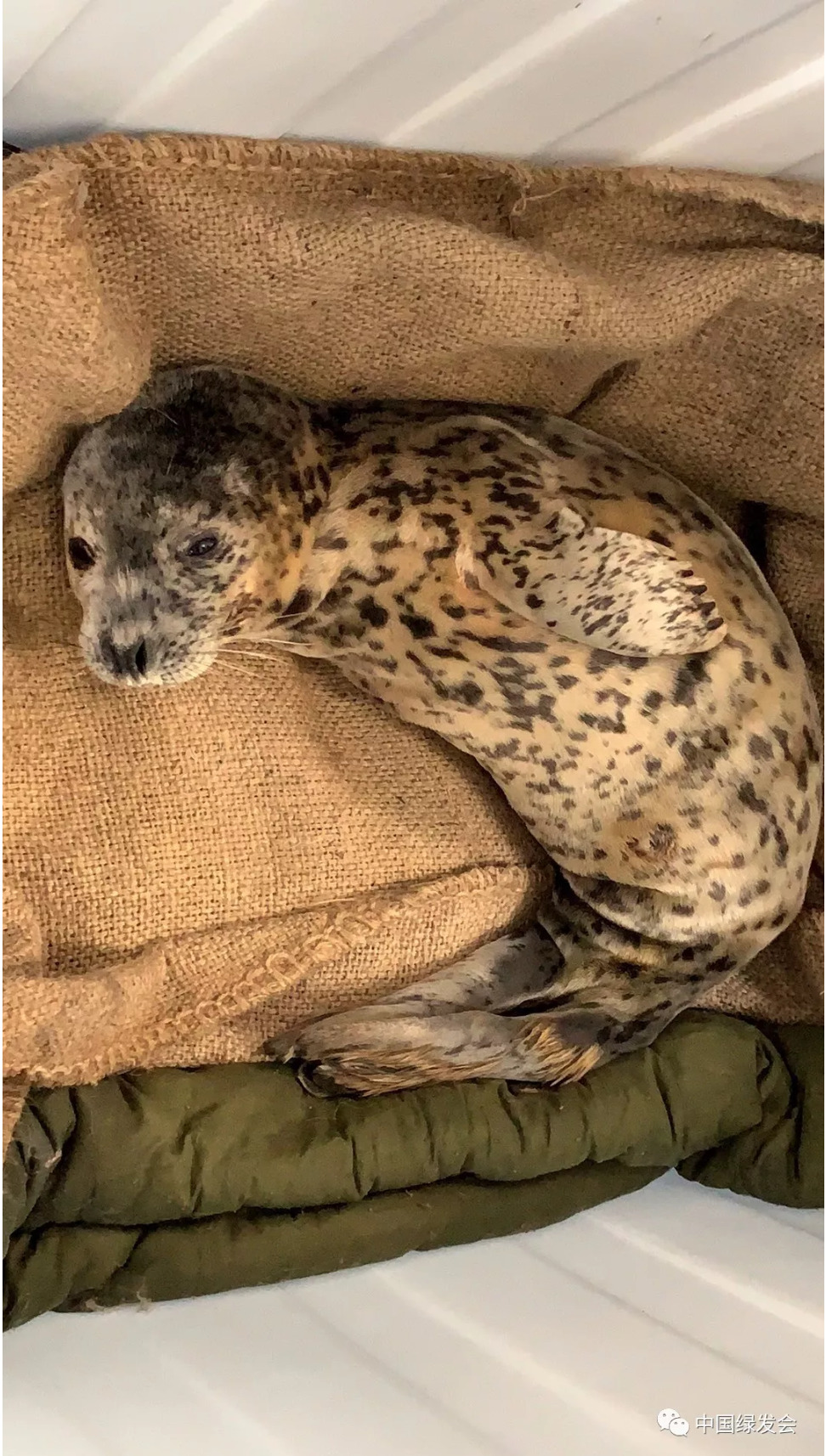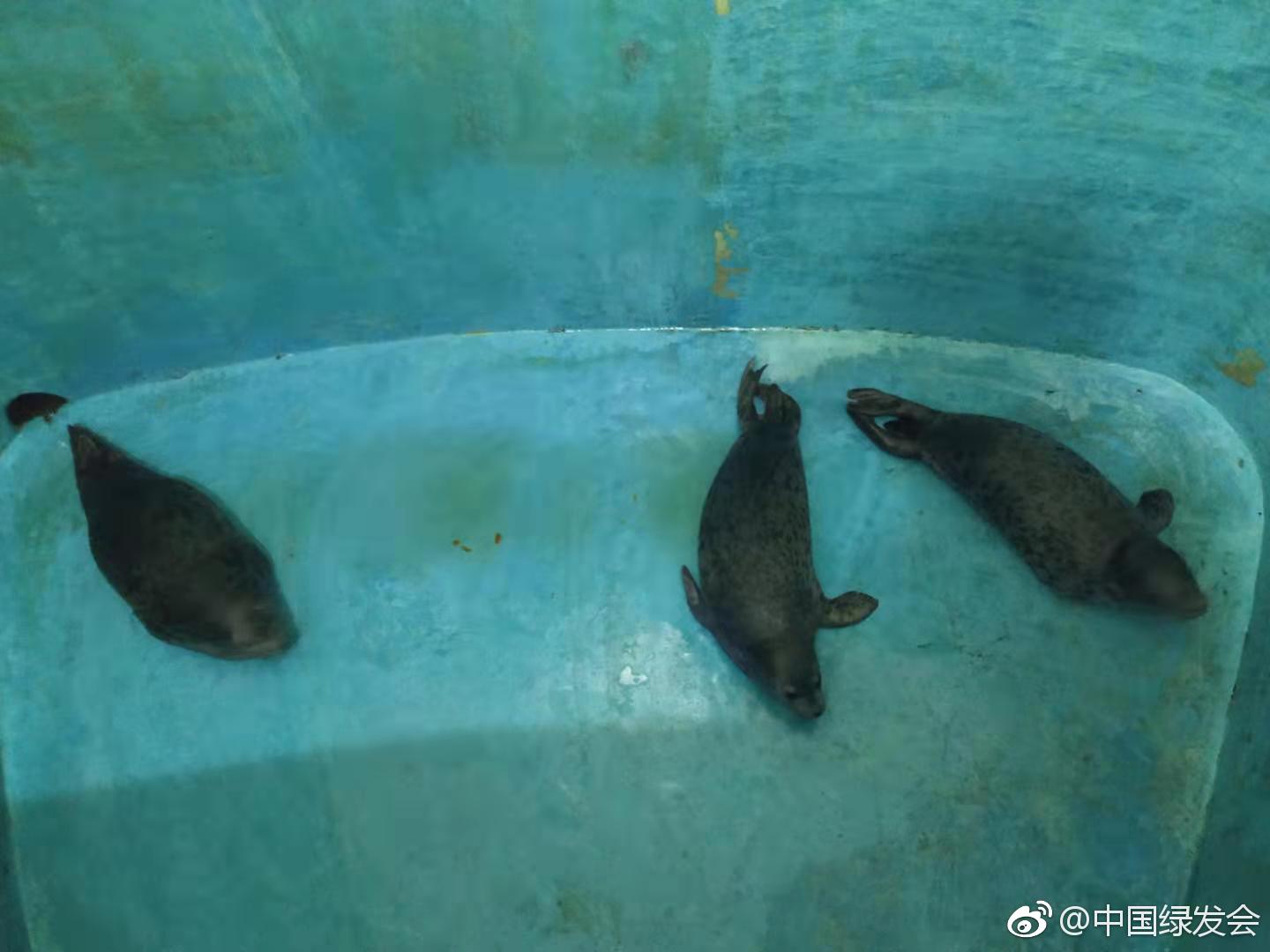Recently, CBCGDF representatives submitted a proposal to the National People's Congress (NPC) and the Chinese Political Consultative Conference (CPPCC), urging the Two Sessions to upgrade spotted seals protection class from Class 2 to Class 1. If approved, this would mark a monumental milestone in history of spotted seals protection.
The names “Class 1” and “Class 2” most frequently refer to animal and plant species in China. Title 9 of “China’s Protection Law of Wildlife” classifies the national key protected wild animals into First Class National Protected Animals and Second Class National Protected Animals. Based on this classification, distinct management measures have been formulated and enforced. The “Wildlife Under Special State Protection List”, which was passed by the State Council on December 10, 1988, includes around 330 terrestrial wildlife. Jointly issued by the Ministry of Forestry and the Ministry of Agriculture, the List includes fewer First Class National Protected Animals than Second Class National Protected Animals (as expected). It can be generally said that First Class animals are those which are presently endangered, severely endangered or almost extinct; Second Class animals suffer much less from extinction, and they are generally more prevalent. Protection and punishment levels differ between the two classes of animals. For instance, hunting First Class National Protected Animals for scientific researches and introduction and domestication requires approval from authorities at the state level, while only provincial level approval is needed for the Second-Class animals in a similar situation.
With respect to spotted seals, they are enlisted in the “Second Class” catalogue. It is said that they are the only marine pinniped mammals that reproduce in China. Liaodong Bay is one of the eight spotted seal habitats worldwide. What distinguishes Liaodong Bay spotted seals from others is their pure Liaodong Bay lineage and hence their genetic differences from other seals in other places and countries. Around 1930, there were about 7100 Liaodong Bay spotted seals. This number declined to about 2269 in 1979. Yet with the increasing in poachers and worsening of habitat environment, the number of spotted seals in Liaodong Bay has suffered an acute decline. It is discovered that only around 1000 spotted seals come to Panjin every year during their productive season. Therefore, the protection of spotted seals has reached a tipping point where formulation of well-targeted and appropriate regulations as well as their implementation may almost certainly decide whether this lovely but endangered species will disappear from the Earth forever.
Extremely alarmed by the 2.11 Dalian Incident of the Poaching of 100 Spotted Seal Pups, CBCGDF’s Secretary-General Dr. Zhou Jinfeng immediately organized a symposium at the incident site which was intended for better rescuing and releasing of the captured seal pups. During the past 33 years, Dr. Zhou and his team have gradually developed an innovative and holistic system for biodiversity conservation, a product of days’ and years’ hard work at the frontline where severe cases threatening the living rights of wild animals permeate. For instance, the China Conservation Area for something at somewhere (CCAfa) system is an area-based protective network whose idea is to make the best of local resources to save local species. The Environmental Public Interest Litigation program is another innovation devised by CBCGDF. In order to voice for the wounded and threatened, this litigation tool has become a legal vanguard defending those whose environmental rights are being treaded on by irresponsible individuals or groups.
In particular, while at the symposium, Dr. Zhou proposed several suggestions that have helped clarify 7 major areas that are to be centered on for future protection of spotted seals. One noteworthy is his suggestion of legal and severer punishment of criminals. Dr. Zhou believes that without this it would still be daunting in terms of identifying and checking the black-market interest chain, which has been so notoriously blamed as being underlying various cruel cases concerning spotted seals.
Now this proposal by CBCGDF representative to the Two Sessions on the upgrading of spotted seal protection level is almost ideally tailored to Dr. Zhou’s suggestion. Indeed, whenever a case of poaching is mentioned, a frequently posed question is: “Is it legal to do this in your country?” If the juridical procedures can function more effectively and productively, then the sad story of only about 1000 spotted seals appearing in the Liaodong Bay every year may no longer be heard.



(Photo credit: CBCGDF)
By / Lu Lei
